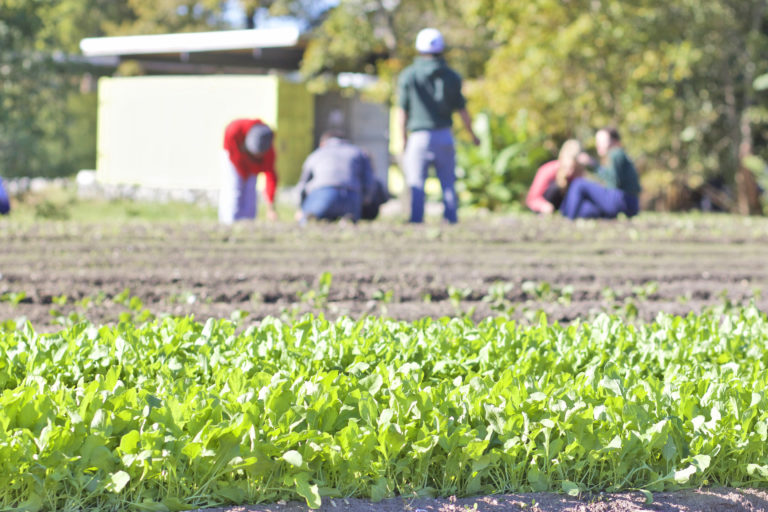Changemaker Catalyst Award recipient Dustin Robertson completed the Grow Dat VISIONS Training in September 2018. Dustin is a PhD student in Tulane’s City, Culture and Community program. He is also the CI+ Social Venture Accelerator Graduate Assistant at Taylor. He attended the training for his own personal and professional growth but also to explore ways to incorporate learnings into CI+.
I used the Changemaker Catalyst Award to complete Grow Dat’s two day VISIONS Training. Unfortunately concerns about inclement weather prevented the training from happening at the farm (in City Park). Instead it was held in the community room of the Refresh Project on Broad Street. Our group consisted of eleven learners and three facilitators from Grow Dat. For the majority of the training we were seated in a large circle facing each other.
The training began with creative ice-breakers that not only lightened the mood, but also encouraged participants (and the three facilitators) to perceive and interact with each other in alternative ways. Once everyone was acquainted we were presented with, and encouraged to try out eight “Guidelines for Diversity and Inclusion.”
Over the next day and a half we explored a variety of concepts and issues including culture, identity, exclusion/inclusion, emotions, -isms, and many others. One of the main goals of the training was to encourage participants to think about their own positionality and how they fit into hierarchies of oppression. Each person has multiple identities and are simultaneously oppressors and oppressed, privileged and underprivileged, advantaged and disadvantaged. This is not, however, to say that all people have equal status in society or to demonize those with more and pity those with less. The goal is for each of us to think about how this positionality affects us, our behavior the impact it has in the world.
Having studied sociology (undergrad) and currently a student in the Tulane CCC PhD., program some of the topics were familiar to me (e.g. oppression, discrimination, culture, inequality). However, other aspects such as analyzing feelings forced me to think in new and unfamiliar ways.
Overall the Grow Dat training helped me grow in personal ways. It forced me to think about my own place in society, and where I fit into systems of oppression. Professionally I plan to use some of the lessons and learnings from the training in my role as Changemaker Institute Graduate Assistant at Taylor. For example, the ice-breakers, exercises and activities may provide an effective way to build a sense of community within the cohort and to teach important messages and lessons to participants.


